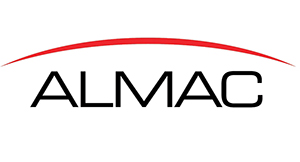Against this backdrop, outsourcing has emerged as both a tactical solution to capacity constraints and a strategic imperative that underpins long-term success.
Outsourcing in the pharmaceutical sector has historically been viewed through a transactional lens — as an operational necessity to manage overflow or reduce costs. However, the landscape is shifting.
Today, contract development and manufacturing organisations (CDMOs) are integral partners in the innovation ecosystem, offering specialised expertise, cutting-edge technologies and scalable infrastructure that enable pharmaceutical companies to navigate complexity and accelerate time-to-market.
Simon Wright, Vice President of Business Development at Almac Pharma Services, reports.
From transactional to transformational partnerships
The evolution of outsourcing from a cost-driven activity to a strategic enabler reflects broader changes in the industry.
As therapies become more complex — ranging from biologics and cell and gene therapies to highly potent small molecules — the need for specialised capabilities has grown.

Pharmaceutical companies are increasingly seeking partners who can not only provide technical execution but also deliver scientific insight and strategic alignment.
To unlock true value from these partnerships, companies are moving beyond transactional contracts toward collaborative models founded on mutual trust, shared objectives and transparent communication.
This shift demands a deeper alignment of cultures and long-term vision, as well as a willingness to invest in joint problem-solving, risk-sharing and continuous improvement.
Such transformational partnerships are often characterised by early and ongoing engagement between technical, operational and commercial teams in both organisations.
Joint governance structures, cross‑functional project teams and collaborative ways of working can facilitate knowledge transfer, ensuring that both challenges and opportunities are addressed proactively.
Moreover, this approach enables both parties to anticipate shifts in technology, regulation and market demand, positioning them to capitalise on emerging trends or pivot rapidly in the face of uncertainty.
By cultivating resilient, innovation-driven alliances, pharmaceutical companies and their CDMO partners are better equipped to navigate the complexities of the modern landscape and deliver transformative therapies to patients worldwide.
These relationships are built on trust, transparency and shared goals, allowing both parties to cocreate value throughout the product lifecycle.
From early phase development to commercial scale-up, integrated service models provide a seamless way to reduce handoffs, mitigate risk and enhance operational efficiency.
Effective project management
Central to the success of these long-term collaborations is the presence of robust project management. A dedicated framework serves as the backbone of complex partnerships, providing structure, clarity and accountability throughout the product lifecycle.
Effective project managers act as the linchpin between cross-functional teams and organisations, ensuring that objectives are clearly articulated, milestones are tracked and potential risks are identified early.

By orchestrating seamless co-ordination throughout the scientific, operational and commercial domains, project management minimises bottlenecks, aligns resources and drives momentum — which is essential in an industry wherein delays can have profound consequences.
Moreover, strong project management fosters a culture of proactive communication and continuous feedback, which is vital when it comes to building trust and maintaining alignment between partners.
Transparent status reporting, regular governance meetings and shared platforms enable real-time problem solving and agile decision making. This adaptability is particularly valuable when navigating the uncertainties inherent in pharmaceutical development, from shifting regulatory requirements to evolving market conditions.
Ultimately, the discipline and foresight provided by effective project management not only safeguard timelines and quality but also unlock opportunities for innovation, thereby delivering greater value to both partners and, most importantly, to patients.
Leveraging expertise and technology
One of the key drivers of strategic outsourcing is access to specialised expertise, deep know-how and advanced technologies. CDMOs such as Almac Pharma Services invest heavily in scientific talent, state-of-the-art facilities, equipment and infrastructure to support complex development programmes.
This includes capabilities in formulation development, analytical services, non-GMP and GMP manufacturing and commercial packaging at various scales — each of which is critical to ensuring product quality, regulatory compliance and patient safety.
For example, the formulation of a poorly soluble compound may require innovative approaches such as amorphous solid dispersions or lipid-based systems.
Analytical development must then characterise these formulations with precision, using techniques including LC‑MS, NMR and particle size analysis.
GMP manufacturing demands rigorous process control and validation, whereas packaging must ensure stability and traceability in global markets.
By outsourcing to a partner with integrated capabilities, pharmaceutical companies can streamline development timelines, reduce technical risk and focus their internal resources on core competencies such as clinical strategy and market access.
Mitigating supply chain risk
The COVID-19 pandemic underscored the fragility of global supply chains and the importance of resilience. Disruptions in raw material availability, transportation and regulatory approvals highlighted the need for robust contingency planning and diversified sourcing.
Strategic outsourcing plays a vital role in mitigating these risks by providing flexible capacity, geographic redundancy and proactive risk management.
CDMOs with global footprints and experienced cross-functional teams can respond quickly to changing demands, whether it’s scaling-up production for a new indication or navigating regulatory changes in emerging markets.
Moreover, integrated quality management systems and traceability enhance visibility and control, enabling real-time decision making and continuous improvement.
Accelerating time-to-market
Speed is a critical factor in pharmaceutical innovation, particularly in competitive therapeutic areas with unmet medical needs. Delays in development or manufacturing can have significant financial and clinical implications.

Strategic outsourcing enables companies to accelerate timelines by leveraging existing infrastructure, validated processes and experienced personnel. For instance, a biotech firm developing a novel oncology therapy may face challenges when scaling-up production for clinical trials.
Partnering with an established CDMO that offers end-to-end services — from formulation and analytical development to clinical packaging — can compress timelines and ensure readiness for regulatory submissions.
This agility is especially valuable in fast-moving fields when speed to market can impact public health outcomes.
Looking ahead: customisation and collaboration
As the pharmaceutical industry continues to evolve, the role of outsourcing will become even more critical. Customisation for specific therapeutic areas, patient populations and regulatory environments will require flexible and responsive partnerships.
CDMOs must continue to invest in technology, talent and infrastructure to meet these demands. Moreover, collaboration will extend beyond bilateral relationships to include consortia, academic institutions and technology providers.
The future of outsourcing lies in ecosystems that foster shared learning, innovation and data-driven decision making.
Flexibility and responsiveness In today’s dynamic pharmaceutical environment, flexibility and responsiveness are no longer optional; they are essential attributes of any successful outsourcing relationship.
As development pipelines diversify and regulatory expectations evolve, pharmaceutical companies require CDMO partners that can adapt quickly to shifting priorities, scale operations efficiently and respond to unforeseen challenges without compromising quality or timelines.
Whether it’s accommodating accelerated development for breakthrough therapies, adjusting batch sizes for niche indications or navigating last-minute changes in regulatory guidance, CDMOs must demonstrate operational agility and rapid decision making.
This responsiveness is underpinned by robust infrastructure, cross-trained teams and a culture of proactive problem solving. The ability to pivot rapidly — without disrupting continuity or compliance — can be the difference between meeting a critical milestone or missing a market opportunity.
Moreover, flexibility extends beyond technical execution. It encompasses commercial models, governance structures and communication frameworks that can evolve alongside the partnership.
CDMOs that embed adaptability into their operating philosophy are better positioned to support their clients through uncertainty and innovation alike, reinforcing their role as strategic enablers in the pharmaceutical value chain.
Conclusion
Outsourcing in the pharmaceutical industry is no longer a tactical choice; it is a strategic imperative that enables companies to navigate complexity, accelerate innovation and deliver value to patients.
By evolving from transactional engagements to long-term partnerships, pharmaceutical companies and CDMOs can cocreate solutions that address scientific, operational and commercial challenges.
At Almac Pharma Services, we are committed to building resilient and innovative partnerships that support the future of medicine.
With tailored, integrated services, scientific aptitude and strategic collaboration, we help our clients to bring life-changing therapies to market with speed, quality and confidence.

